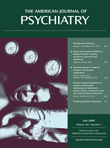A wise man once said that a conclusion is simply the place where someone got tired of thinking. Jerome Kagan, in a personal memoir that traces his career alongside the history of psychology over the last 50 years, concludes in An Argument for Mind that “a complete understanding of brain is not synonymous with a full understanding of mind.” While comforting to the defenders of Cartesian dualism, such pronouncements place Kagan in opposition with most modern neuroscientists, evolutionary biologists, and philosophers (such as Daniel Dennett and Thomas Metzinger), who view consciousness as an integral aspect of a neural mechanism subject to natural selection.
Starting with graduate school and his explorations of animal sexuality under the tutelage of Frank Beach, Kagan charts the course of his intellectual curiosity and career development as a series of sentinel events which shed increasing light on the forces that contribute to variation in behavior, mood, and belief in children and their persistence into adulthood. Initially attracted to a career in medicine, “which promised economic security, status, and an understanding of human bodies,” he chose psychology instead because it seemed less in competition with his “penetrating interest in human thought.” An offer to shepherd the assessment of a large cohort of young adults who had been periodically studied since childhood resulted in Kagan’s first major contribution to the literature on personality development, an APA Hofheimer Prize, and a position at Harvard. What do infants pay attention to and why? How much is innate and how much is learned? What is the relationship between object permanence and separation fear? Kagan’s contributions to answering these questions are clearly described and fairly positioned by him in the context of psychological beliefs of the time, as well as those of present day. This is not done totally in a selfless manner. Charles Darwin’s career and contributions seem to parallel Kagan’s more than one would have thought, and we are told that Aristotle and Francis Bacon would have been pleased by Kagan’s early embrace of empiricism over fantasy, which Kagan describes as the misconceived preoccupation of psychoanalysis. A sabbatical year on Lake Atitlán in Guatemala studying the role of malnutrition on cognitive development resulted in Kagan shifting from his previous certitude regarding the permanence of early experience and becoming more sensitive to the constraints of neural development and brain maturation. An interest in moral development emerged, as did an involvement in temperament. Finding that there were no important cognitive or emotional differences between infants in day care and those raised at home, Kagan focused on the dimension of inhibition or social shyness, which was found to be moderately heritable and of enduring consequence, not only to the child but also to Kagan himself, since the finding represents his best known scientific contribution. He speculates on the neuroanatomic underpinnings of the trait, as well as its social advantages and disadvantages, but what specific relevance this has to the mind-body problem, the supposed theme of the book, is not clear. The last several chapters, in which linguistic confusion serves as the main argument for why psychological descriptions can never match brain profiles and a phalanx of straw men are constructed and destroyed, seem awkwardly appended. Readers in search of a cogent consideration of how mind and brain relate would be better served by Christof Koch’s The Quest for Consciousness or John Searle’s Mind: A Brief Introduction, but as a scientific biography and as a chronicle of major ideological shifts in psychological beliefs in modern times, An Argument for Mind is both entertaining and thought provoking. Also, an author who can reference Kurt Gödel, Donald Hebb, and Jean Piaget in the same work as Louis Malle, Vladimir Nabokov, and Eugène Delacroix is an enjoyable guide.

